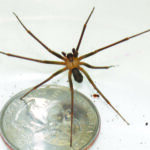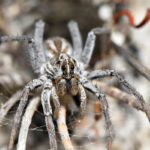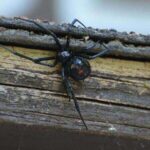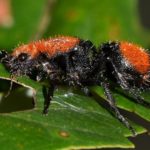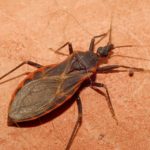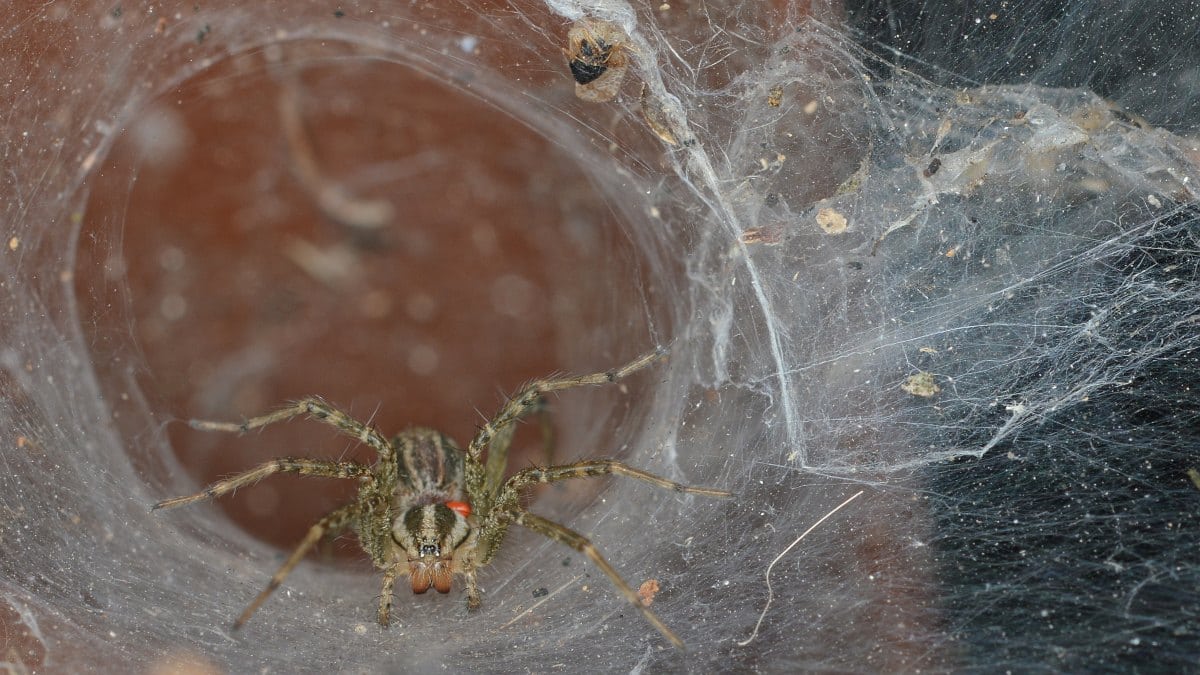
Before Miss Muffet sat on her tuffet, she should have done her homework. Small, grassy mounds like the one on which she took her rest are prime locations for grass spiders to nest. So, how can you get rid of grass spiders? A better question is whether you should get rid of them, as these fast spiders kill other insects and pose no real threat to you.
But if you’d rather not see grass spiderwebs sparkling in the morning dew, mowing and keeping your outdoor areas free of trash and overgrowth are the first steps toward getting rid of these eight-legged arachnids.
What are Grass Spiders?
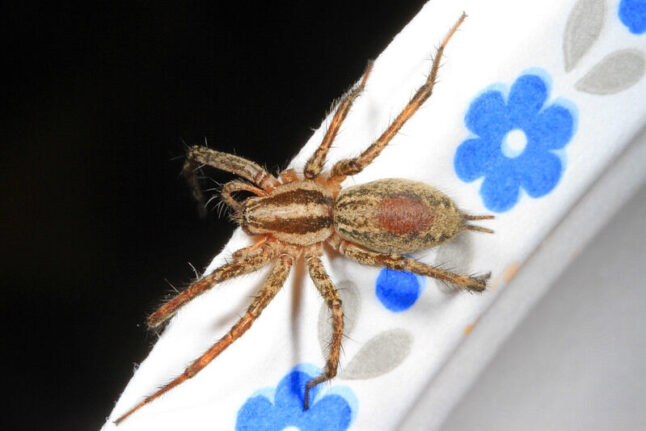
From the family Agelenidae, meaning they build funnel-shaped webs, grass spiders (Agelenopsis spp.) are brown and striped and grow to about 1 inch in length. These funnel weavers live in tall grasses, ground covers, bushes, shrubs, and small crevices of buildings and rocks.
Using their long spinnerets, which resemble a tail, these spiders craft nonsticky nests hoping to catch a meal, as they hide deep inside the narrow passageways. Once an insect wanders onto the web, the fast-moving grass spider will feel the motion and rush to immobilize its prey.
But are grass spiders dangerous to humans? No, they are not. Grass spiders are venomous, like many of their kin, meaning they produce toxins to take down their victims, but they avoid humans and other large animals. As such, grass spider bites are very rare and happen only when they feel threatened.
Problems Caused by Grass Spiders
Naturally evasive, these spiders won’t cause too many problems for you. Grass spiders are quite beneficial, controlling lawn insect populations, which left unchecked, could wreak havoc on grasses. These are the main downsides of having grass spiders living on your lawn:
- Too many grass spider webs can make a lawn look unkempt. Spider webs, although a natural occurrence, are commonly associated with something “old” or “abandoned.”
- Although they are shy and avoid large animals, there’s a slim chance, if conditions are right, that grass spiders will bite. During outdoor play, for example, if a grass spider is accidentally disturbed, it may bite in defense — and that’s a hard maybe.
While a grass spider bite could cause itchiness, redness, and swelling, medical attention is unnecessary.
- The real problem lies more with the insects attracting the spiders to your property. Removing food particles, sealing outdoor trash cans, and cleaning up spills can help deter insects, and in return, take away any reason for these spiders to move in.
How to Protect Yourself from Grass Spiders in Your Yard
While it is rare for a grass spider to bite you, there’s nothing wrong with taking extra precautions, just in case:
- To start, outfit yourself with the right gear. Wear a long-sleeved T-shirt, long pants, socks, closed-toed shoes, and gloves.
- Inspect the shoes and gloves if they’ve been stored in the garage so you don’t unintentionally stir up a hidden spider.
- Once outside, look over the area you’re about to dig into for signs of spider activity. If you notice any webs, brush them away with a broom.
- Spray spider repellent on your clothing and any exposed areas of skin.
How to Get Rid of Grass Spiders
The occasional web on your lawn is nothing to fuss over. You can leave it be, sweep it with a broom, or wash it away with a water hose.
But, if you’re worried your yard will become overrun with these habitats or are afraid a grass spider will get in your house, here’s how to get rid of spiders in the grass:
All-Natural Grass Spider Control
“An ounce of prevention,” as the proverb begins, “is worth a pound of cure.” Effective natural pest control for your lawn starts with routine lawn maintenance and consistent cleaning. Stop an infestation before it has a chance to begin by following these tips:
- Get rid of tall grasses, weeds, and brush piles, as they make great homes for these spiders. Regularly mow the lawn and trim bushes, hedges, and shrubs. Don’t let trash accumulate: Human food crumbs also attract insects these spiders consume.
- You can also opt for diatomaceous earth, a substance made from the fossils of aquatic organisms. It’s non-toxic and harmful only to arachnids and insects.
According to the University of Oregon Extension Service, “diatomaceous earth causes insects to dry out and die by absorbing the oils and fats from the cuticle of the insect’s exoskeleton. Its sharp edges are abrasive, speeding up the process.”
- Use natural repellents. Chestnut oil and peppermint oil can repel spiders effectively. Spraying your lawn with a mix of water and these essential oils may work. This simple and homemade spider-repellent option helps ward them off.
You also could plant a chestnut tree or peppermint around your yard. Most likely, though, this will keep spiders away from those plants rather than your entire yard.
Pesticides to Control Grass Spiders
Pesticides, which can also kill pollinators and other beneficial insects, should be your last resort to get rid of grass spiders. Another reason to avoid them? Insecticides also can harm people and pets. “Be sure you need it,” advises the University of California’s Integrated Pest Management program.
UC’s guidelines stipulate: “Verify that the organism you seek to control is really causing lasting damage, and research alternative management methods. Keep in mind that most pests cannot be entirely eliminated — even with pesticides.”
Generally, unless you have a serious spider problem, experts warn homeowners against actively working to rid lawns of these arachnids.
FAQ
Are Grass Spiders Poisonous?
Grass spiders are venomous, not poisonous. It sounds confusing, but here’s the difference: Poison is a toxin that gets into your body through ingesting, inhaling, or skin absorption. Venom, on the other hand, is injected into your body through a sting or bite — which is what grass spiders do.
But remember: Although venomous, grass spiders are not dangerous to human health. Their bites can cause itching and swelling but pose no serious risk. Besides their shy, avoidant behavior, their small fangs can’t properly pierce human skin. People with thin skin, such as small children and the elderly can be more vulnerable to their bites.
Similarly, their bites are not dangerous to dogs or cats. But what if your curious cat ate one? Are grass spiders poisonous to cats? Rest easy: Even when ingested, grass spiders are not poisonous to dogs or cats.
Pro tip: Be attentive to any signs of allergic reaction or poisoning, since other spider species can be dangerous if ingested by pets (such as the black widow and the brown recluse spider).
How Can You Tell if it’s a Grass Spider or a Brown Recluse Spider?
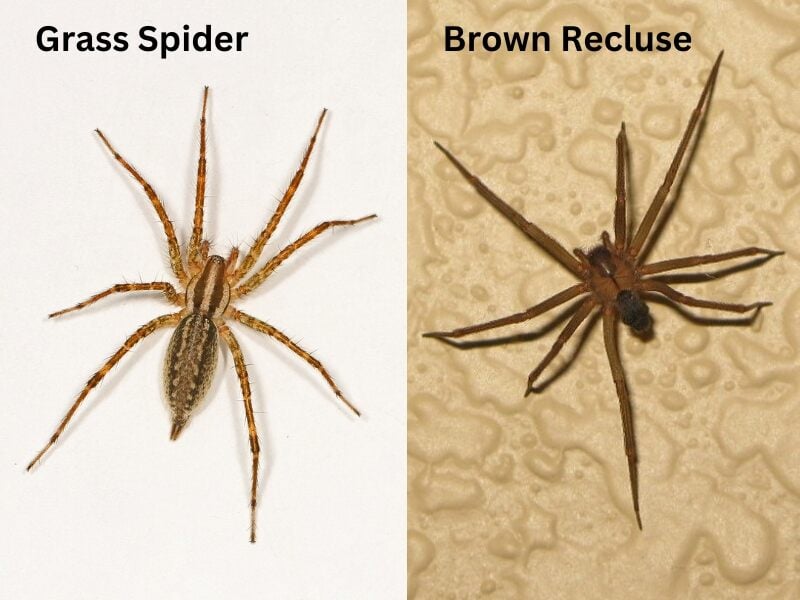
Grass spiders are often mistaken for wolf spiders, hobo spiders, or brown recluse spiders. But here are the main differences between brown recluse spiders and grass spiders so you can tell one from another:
- Habitat: You’ll most likely find brown recluse spiders living in undisturbed areas like garages and crawl spaces (and those old cardboard boxes left in the attic). They are usually found walking around, and not on the web.
Grass spiders are more often found in the outdoors (although they can sometimes sneak their way into your house). They like to take shelter at the bottom of their funnel-like webs, usually in grassy areas and window wells of buildings.
- Physical appearance: Brown recluse spiders have slim, long legs. They are light brown and have a characteristic dark brown, violin-shaped patch on the head. Unlike most spiders, the brown recluse spider has six eyes instead of eight.
Grass spiders, on the other hand, are yellowish-brown and have two longitudinal stripes on their abdomen. They can also be identified by their long, noticeable hind spinnerets.
- Bite: While grass spider venom is not a reason to worry, the brown recluse spider bite can cause serious injury and require immediate medical attention. It is particularly dangerous to young children, the elderly, or immunocompromised people.
Do Spiders Eat Grass?
In short, no. Spiders don’t eat grass. Generally, insects are a spider’s main food source (sometimes even other spiders). However, some species do feed on plant material like sap, pollen, and nectar. But your grass is safe: Grass blades are off of the spider menu.
When to Call a Pest Control Professional
Whether you’ve got a large-scale grass spider infestation or you’d rather someone else come out and take care of the dirty work, call a pest control pro near you. A certified pest control specialist will come to your home and develop the best plan of attack.
Soon, you will be back sitting on your tuffet without fear of grass spiders or other pests.
Main image credit: Ryan Hodnett / Wikimedia Commons / CC By SA 4.0
